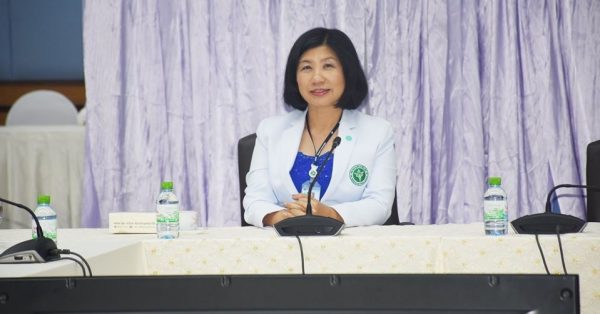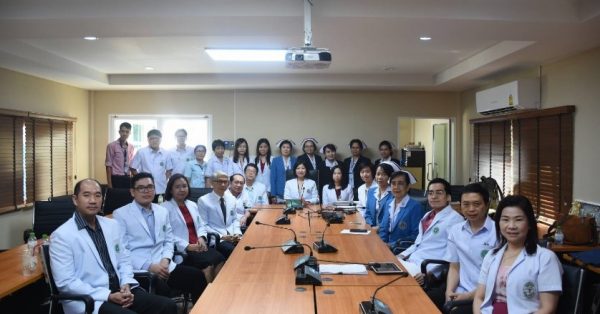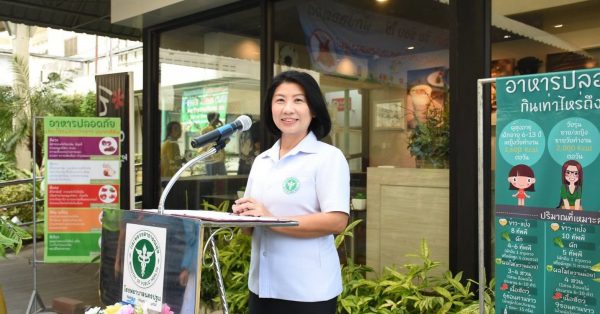EXCLUSIVE: Hospitals can apply management skills to battle the coronavirus, writes Kanda Yaemboonruang
“Keeping morale high, correct understanding and maintaining social responsibility are the magic words to fight the epidemic.”

Dr. Dararat Rutanarugsa, Director of Nakhon Pathom Hospital, Thailand
Big news hit Thailand on 20 January 2020 when the first case of the new strain of coronavirus (COVID-19) was identified at Nakhon Pathom Hospital. The announcement made the Thai public sit up and take notice that the novel coronavirus had arrived and could be knocking on their front door anytime. Ten days later, new hope emerged when the hospital announced that they were able to cure the first patient, a Thai of Chinese descent had been given the nickname “A-Ma”, and that the patient was recovering.
Overnight, Nakhon Pathom Hospital became a fixture of attention across the country, as media focused on this successful treatment. Dr. Dararat Rutanarugsa, MD, PhD, the director of Nakhon Pathom Hospital and an AIT alumnus who graduated from the AIT School of Management in August 2017 with a doctoral degree in Business Administration, was on the front-line along with her team combatting this fierce new virus.
UNKNOWN TERRITORY
Asked to describe the first COVID-19 case in Thailand, Dr. Dararat said: “When we first received the case, we didn’t know exactly how to treat the patient with COVID-19, but we believed in our ability and capacity, and our medical staff was ready for the hard work ahead. Finally, we succeeded in our first attempt.
“The patient, 73, had heart disease, high blood pressure was thyrotoxic. Her underlying medical conditions put her in a vulnerable group. At the time she was tested and had a positive result for the coronavirus, the Thai medical personnel were still guessing blindly about how to fight the emerging disease identified in Wuhan, China. But we believed in our capacity as we are the main medical hospital in the province, which is well-equipped with advanced medical technology, and we had the support from the Minister of Public Health, Mr. Anutin Charnvirakul, and from the provincial governor so we were able to raise public confidence. Then all the hard work paid off when, ten days after the case was identified, the patient was tested negative for COVID-19.”
She explained that the hospital ran the test twice by following the Standard Principles of Public Health to confirm the results before releasing the news to the public. The patient was discharged and was able to return home in time for the Chinese New Year celebration.
STRONG HOSPITALS ARE KEY
The nation’s hospitals are key to reacting to serious public health scares, such as the ongoing COVID-19 crisis, she said. The public must be assured that hospitals are safe places for the patients especially in times of health crises. Dr. Dararat added that maintaining the physical health and morale of hospital staff is critical to success. She even purchased COVID-19 insurance for all hospital staff members as a top-up benefit to their current insurance plan to ensure that health workers are themselves well taken care of as they cared for patients.
“Keeping morale high, correct understanding and maintaining social responsibility are the magic words to fight the pandemic. After the news broke that we had been successful in our effort to treat the first patient, we gained trust from the public. We thought we should optimize this trust and use it as our platform for knowledge distribution. We created a music video and uploaded on to our YouTube channel. It was a team effort with our doctors writing the lyrics and our hospital staff as the musicians and dancers in the video. It was definitely a fun-filled morale-boosting activity for all of us, and, at the same time, we are able to educate the public in a creative way.”

Keeping morale high with the Nakhon Pathom Hospital team.
Dr. Dararat added: “After this first case, we have been stricter with our management to ensure safety for everyone at the hospital. We have been trying to reduce the size of crowds at the hospital and to manage transferring routes for patients, relatives and staffs. Everyone is advised to wash their hands and check their temperatures at screening points and practice social distancing. Also, with the shortage of surgical masks now, we really need to consider who really needs them. Those who are not at high risk can use fabric masks, but those who are at high risk, especially medical personnel who work closely with patients, need masks with better performance, such as the N95. This is the management principle when battling with a disease.
ON THE FRONT LINE
“I liken hospital staff to the army on the front line, and crew morale is very crucial. They should be well equipped to fight their battles. Masks are one of armors in this battle against this disease. We must identify who really ‘needs’ masks. Once we have this information, hospitals can better manage the distribution of masks provided by Ministry of Public Health. Hospitals need to put in place the short-term and the long-term inventory. We need to make sure that, for the short-term inventory, we have enough masks for medical personnel for at least 2 weeks, but for the long-term inventory, we need several months’ worth of stocks. This can ensure we will not experience a mask crisis."

Dr. Dararat Rutanarugsa earned her doctorate in Business Administration from the AIT School of Management.
As a PhD in Business Administration from AIT, Dr. Dararat underscored the need for proper management of hospitals, especially in times of such emergencies as COVID-19. “AIT is part of this success. I am very lucky to have had the opportunity to study in the Doctor of Business Administration program at AIT. I gained a great deal of knowledge about management, which I can readily apply in my management of the hospital and in my service to the public. The knowledge about how to manage resources, which I learned from my finance class at AIT has allowed me to assess how much I can spend and how much I should save, and to manage risks properly, like this crisis. All of this, I have AIT to thank for.”
“When we first received the case, we didn’t know exactly how to treat the patient with COVID-19, but we believed in our ability and capacity, and our medical staff was ready for the hard work ahead. Finally, we succeeded in our first attempt.”
Kanda Yaemboonruang is Senior Public Relations Officer at the Asian Institute of Technology

